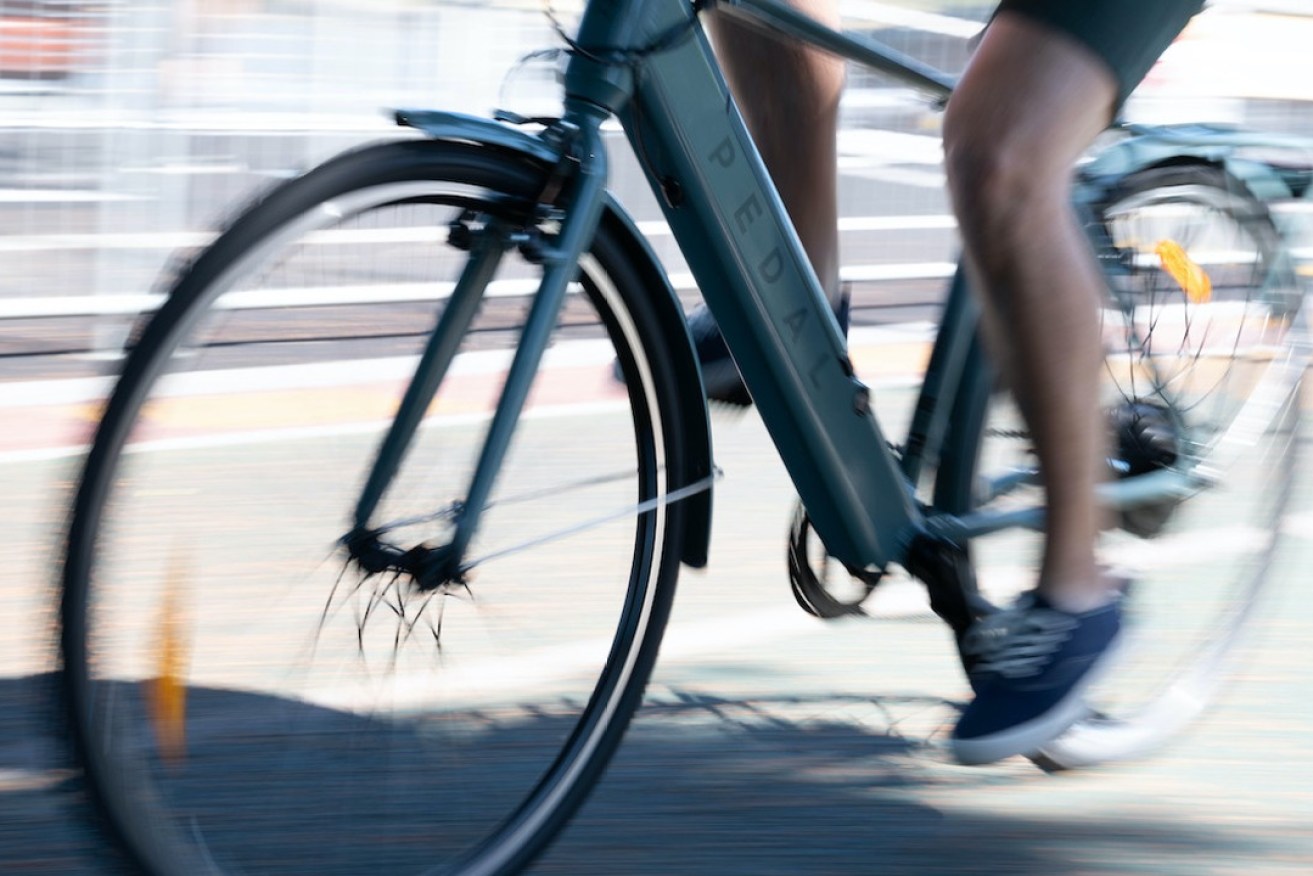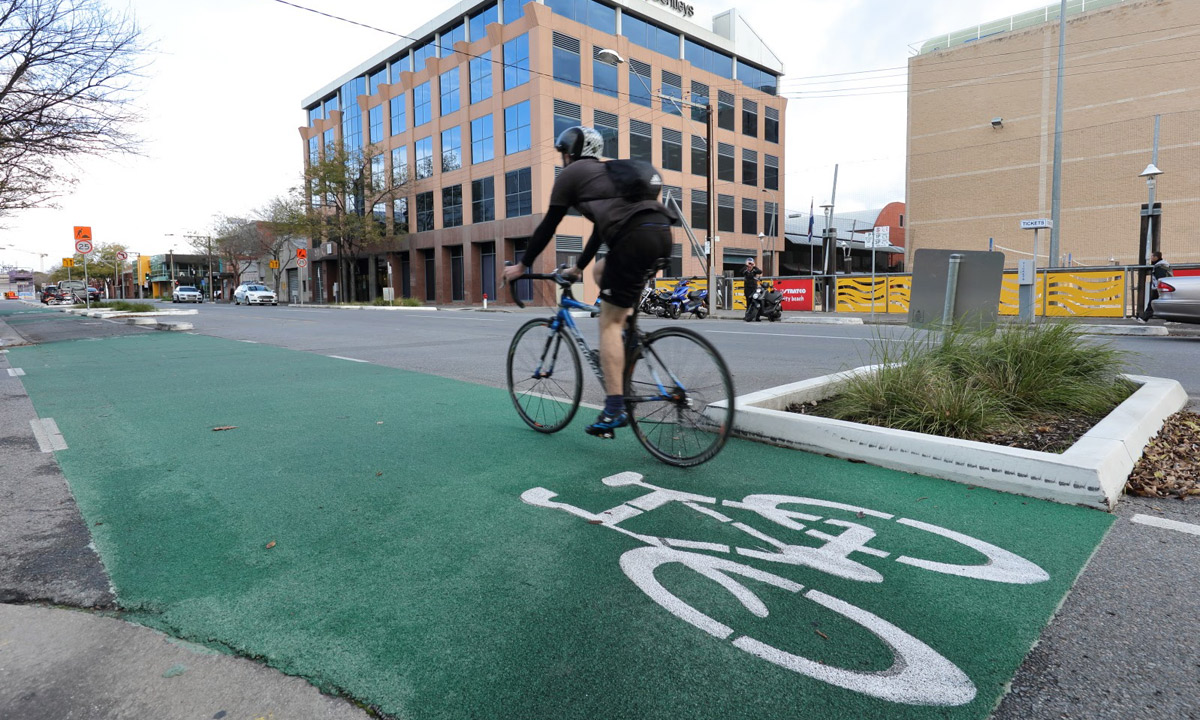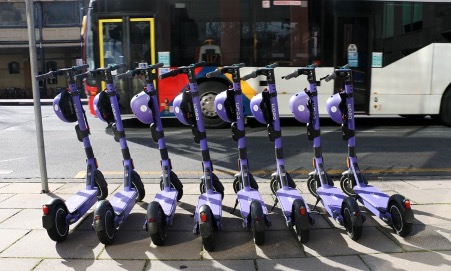City council on path to e-bike push
Adelaide City Council will consider subsidies and incentives to encourage residents and businesses to buy e-bikes.


Photo: AAP/Sequel PR/Geoff Stock
In the first council meeting of 2024, the council voted in favour of developing a sustainability incentive scheme for residents and businesses to purchase e-bikes and cargo bikes, and install new or replace broken bike racks on private property.
The motion was brought by Councillor David Elliott – Adelaide City Council’s self-proclaimed cycle enthusiast – and was passed unanimously with a few additions.
His proposal incentivises bike and e-bike purchases as well as commuting accessories such as panniers and racks, repairs and services and e-bike conversion kits.
The scheme would be in line with the drafted Integrated Climate Strategy endorsed by the council in December 2023, which prioritises tripling the number of city workers getting to work by cycling and doubling the number of local residents who walk to work.
“If you pay rates to do business or live in the city, you’re paying for our roads,” Elliott said.
“This subsidy will allow everyone who pays for our streets fair access to them without putting more cars on them.”

Frome Street bike lane. This image: Tony Lewis / InDaily
Elliott said while e-bikes are much cheaper than cars, they’re still a significant expense for most people.
“My own e-bike which I purchased at the end of last year was still a couple thousand dollars, but seeing it on sale, sparing myself a few hundred dollars was enough to help me make my decision,” he said.
While not opposed to the motion, Councillor Simon Hou raised concerns about differentiating between e-bikes and e-scooters, the latter being a hot topic of debate in past council meetings.
“We have received many complaints from the residents about the e-scooters getting on the footpath and they do not have clear regulations in terms of how to use e-scooters,” Hou said.
Hou went on to explain his concern is that e-bikes can still get on the footpaths at high speeds and could garner similar complaints from the community that e-scooters have.

Councillors have raised concerns about disordely parking of e-scooters in the city. Photo: Angela Skujins/CityMag
“If somehow one day we can buy an e-bike and travel it on the road with reasonable insurance cover on it and with reasonable regulations to provide the guidelines I’m happy, I’d probably use one of them myself,” Hou said.
E-bikes are regulated in South Australia, with requirements including that the main source of propulsion is by pedalling. For legal use on our roads, electrically powered cycles must have a maximum power of 250 watts and an output that cuts off once the bike reaches a speed of 25km per hour.
Riders of e-bikes do not require a driver’s licence, vehicle registration or compulsory third-party insurance.
E-bikes have become hugely popular in Australia, with some industry estimates showing bike imports growing by 45.9 per cent between 2017-18 to 2021-22.
“We’ve seen a huge uptake; people are using these vehicles because they feel safe on them, they feel powerful, they feel they can move and carry what they need to do in a safe and efficient way,” Elliott said.
The parameters of the incentives outlined in the motion will be developed with the consideration of road rules and regulations for e-bikes.
The cycling enthusiasm continued in the chamber as the council voted to investigate celebrating World Car-free Day on Sunday, September 22.
The event is a United Nations environment program initiative, followed closely by Ride2Work Day on October 16. Council will consult with community partners and run public campaigns to host a suite of events endorsing going car-free later in the year.
This motion couldn’t be brought without some recalling the previous council’s ‘driver’s month’ which as Counsellor Mary Couros put it last night “did get ripped apart in the media”.
“We need to get people out of their habits, and this is the habit we created through Covid when people wanted to use their cars only and not using other modes of transport,” Couros said.
Elliott, who brought the motion to celebrate Car-Free Day, said he appreciated the frame of thinking at the time of driver’s month due to public patronage being at a low, but highlighted that ultimately it was a failure.
“The administration report following driver’s month indicated that it cost in the order of $100,000 in order to provide those giveaways of parking and those promotions and it generated no meaningful effect for city visitation at all,” he said.




